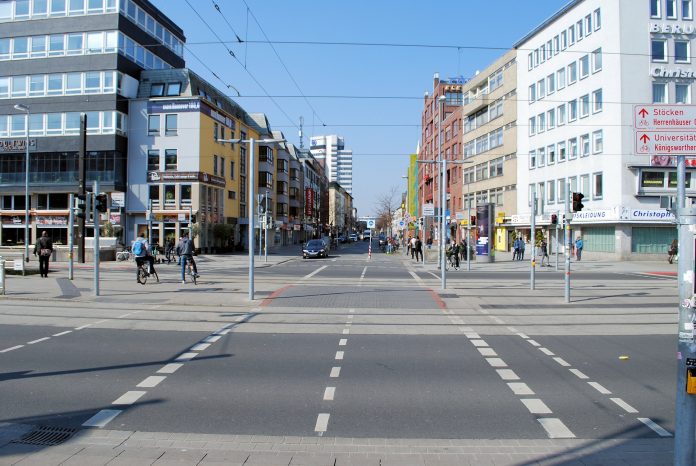If any reminder were needed of how serious an impact COVID-19 is having on our world, the rash of states of emergency declared in many countries serve as a vivid expression of what we are facing.
These declarations providing governments the authority to temporarily restrict certain human rights of their populations have rarely been seen in recent decades. Some countries appear to have forgotten their obligation to inform international organizations that they are being imposed. Restrictions of fundamental rights must only be taken with the greatest care.
Many if not most of us are now living in a context of ‘social distancing’ in which we’re instructed not to gather in large groups. While this is in fact an extraordinary abridgement of our fundamental right to peaceful assembly, considering the circumstances it seems to be a reasonable and understandable step we should all abide by, first and foremost in order to save lives, but also to ensure the well-functioning of our societies.
And our other rights? Should we accept restrictions of our freedom of expression in order to combat disinformation? Should governments be able to act without democratically elected parliamentarians examining their actions? Should authorities be allowed to track our movements to assess if we are abiding by social distancing rules? How long should restrictions be maintained?
The questions surrounding imposition of emergency powers are weighty, and require thoughtful consideration. It was with this in mind that the OSCE Parliamentary Assembly held a debate last year with parliamentarians from more than 50 countries to consider ‘The Scope of Legitimate Restrictions on Human Rights in Times of Emergency’. What seemed theoretical at that time is now all too real.
That discussion served as a reminder to all of us that as members of the OSCE all of our countries have already considered and agreed to a framework of what restrictions are acceptable in times of emergency.
Broadly speaking, restrictions must: 1) Only be during a time of emergency that threatens the life of the nation; 2) Be limited strictly to the requirements of the situation and must be proportionate; 3) Be consistent with other legal obligations; 4) Be non-discriminatory in nature. OSCE countries have also agreed to try to ensure the normal functioning of legislative bodies to the highest possible extent.
Many of these questions were addressed in my own parliament in Norway last week. It was a debate I am proud of. When the government requested authority for the coming year, the parliament, after thorough deliberation, decided to restrict this authorization to one month and ensure that it applies for certain laws. I and my fellow parliamentarians demanded that the government return to parliament for any extension so we can make appropriate alterations.
As we understandably focus on the health of our people these days, we cannot allow ourselves to forget the health of our democracies
Policymakers and laypersons around the world are operating under extraordinarily difficult circumstances. Emergency situations require emergency action. However, it is precisely at times of pressure that we must be mindful of and stand up for the democratic and human rights principles that underpin our societies.
We all hope that our governments will act responsibly and with care to address this health crisis, in this situation we are willing to provide them some extra authority. But would governments act with similar restraint if the underlying crisis were a war or terrorist-related security threat? What restrictions would we accept then?
This crisis, which I am confident that we will get through, may serve as a sort of stress test of our societies’ actions during emergency situations. As we understandably focus on the health of our people these days, we cannot allow ourselves to forget the health of our democracies.
Truth is in danger of becoming a casualty of the pandemic. While in times of emergency it may be natural to be cautious with information, governments and parliamentarians must make all possible efforts to be as open and transparent as possible. We must ensure that we continue to benefit from the confidence of our electorates and people. And so I appeal to all my fellow parliamentarians: please, communicate clearly with your constituents and people.
When all this is over, our job is to bring our societies back to normal. How we act during this time of crisis, can determine how we will succeed. If we are to secure sound and democratic societies at the other end of the crisis, we need to stand up for human rights and fundamental democratic principles.
To put it simply: it is easy to be principled when times are good – the real measure of our commitment to the principles we have all agreed on will be seen when times are bad.
Kari Henriksen is a Member of Parliament from Norway and serves as Vice-President of the OSCE Parliamentary Assembly.

